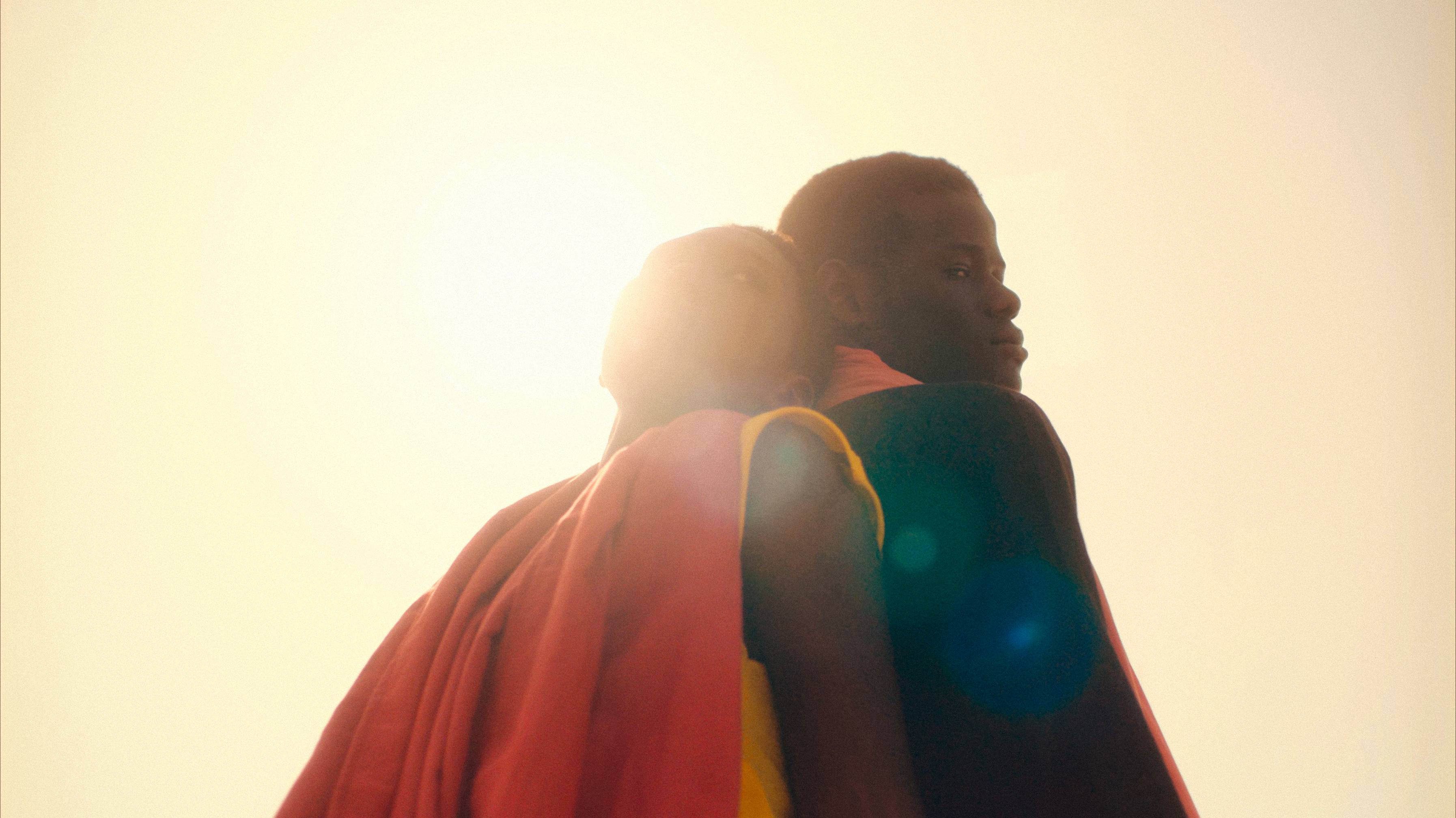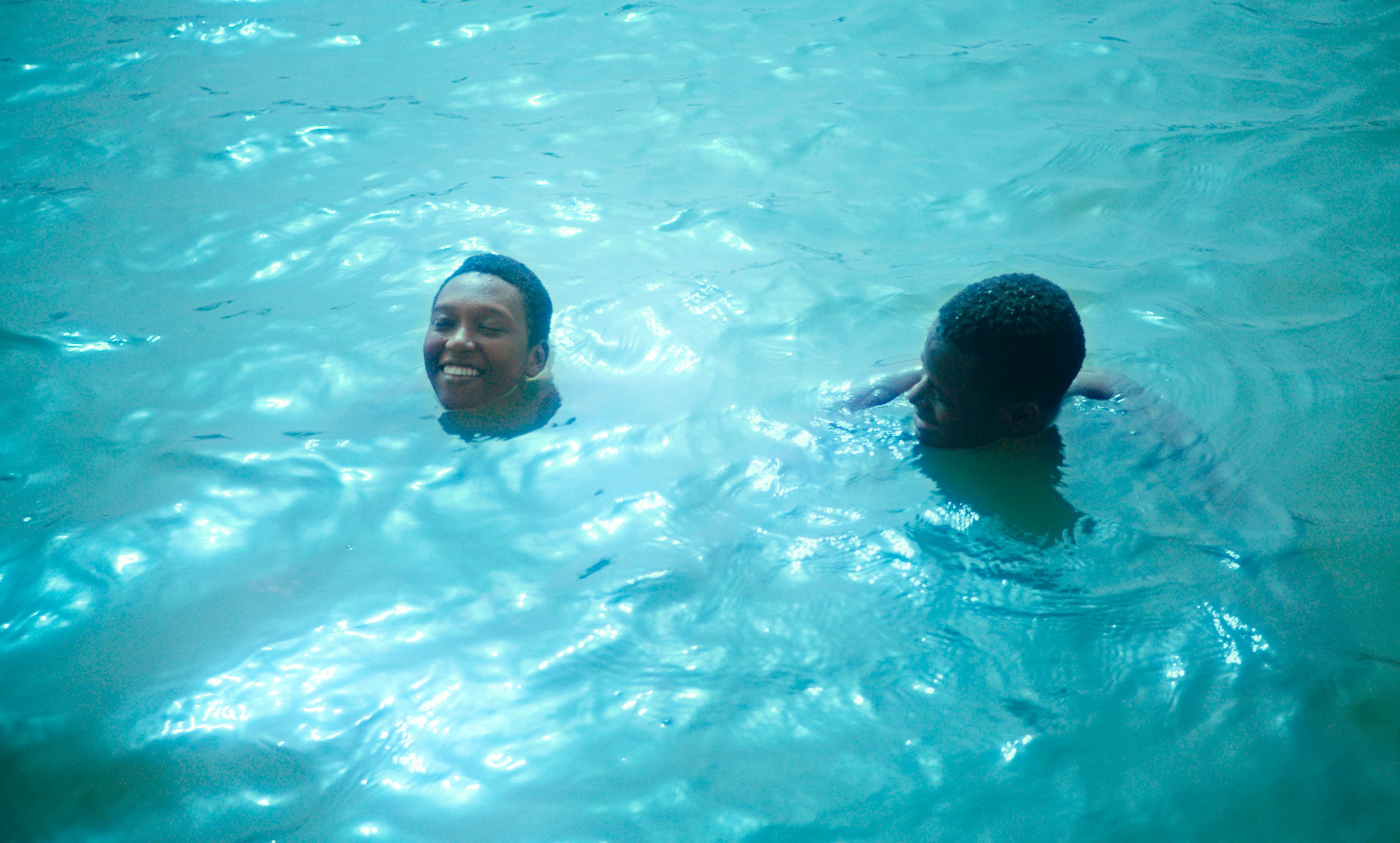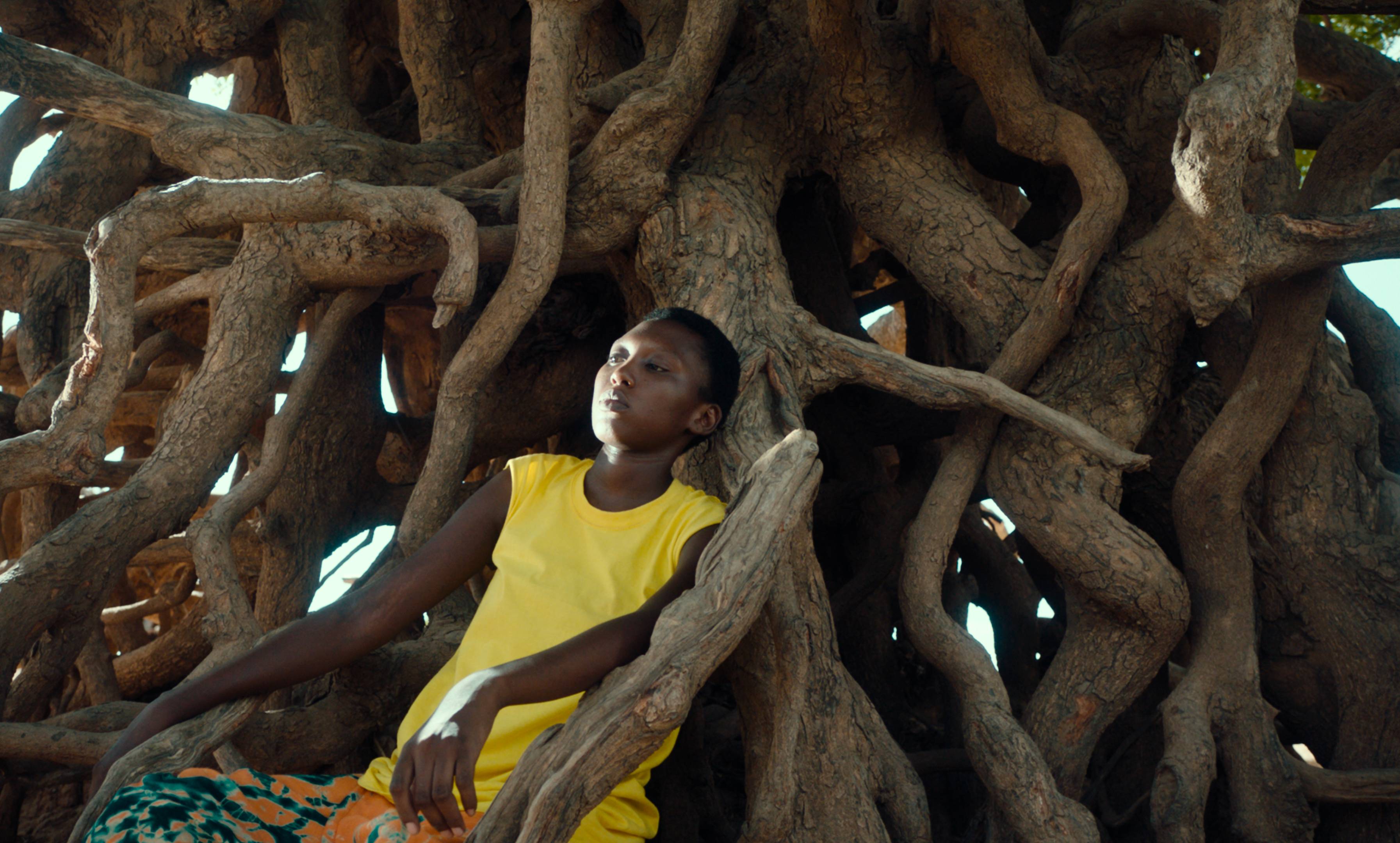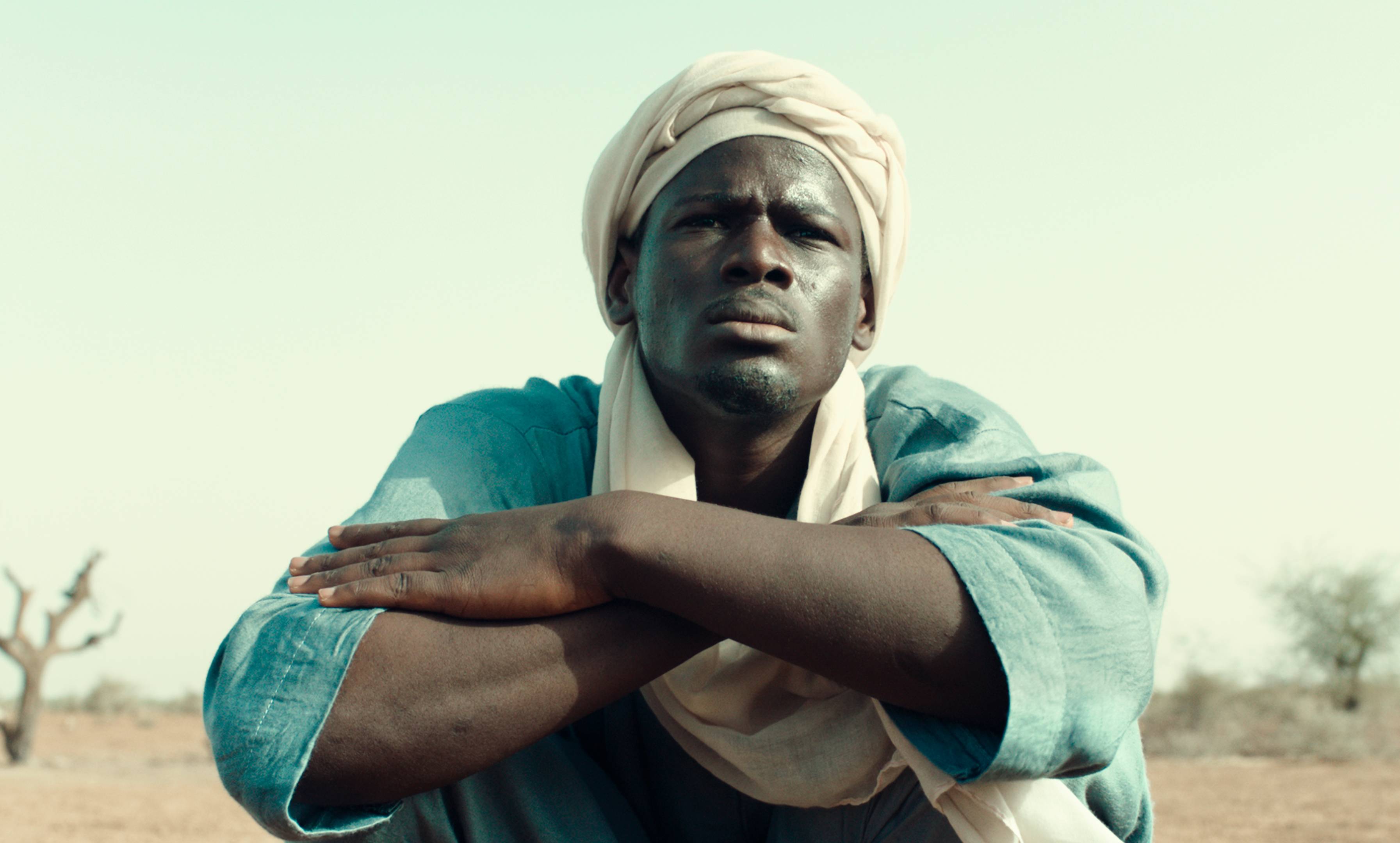The first feature film by Franco-Senegalese director Ramata-Toulaye Sy arrives in Portugal after having been in official competition at Cannes 2023. It was at the festival that we spoke with the director.
We can’t help but notice Ramata-Toulaye Sy, a 38-year-old French-Senegalese director who made her first feature film last year. Banel and Adamato the Cannes Film Festival. She is tall, firm, smiling at the nervousness of the red carpet. She brought non-professional actors from Senegal to the Palais, who spent months in a difficult filming process, which culminated, in scorching heat and the occasional sandstorm, in a love story full of magical realism, images full of colour and life, which soon disappear to give way to the more violent desires of a protagonist who clashes with Senegalese culture. “Everything is too much here,” she tells us, in a conversation with a view to the rest of the festival, suggesting that the pedestal she has now conquered intimidates her, but does not stop her.
The film is set in the complex story of a young woman who just wants to live her passion. It will be released this Thursday, August 8 in Portuguese cinemas.
[trailer oficial do filme “Banel e Adama”:]
The African continent, from Sudan to the Congo, has never had so many representatives at one of the most elitist and Western festivals in the world, which has nevertheless enjoyed being open to new languages and cultures. But Ramata-Toulaye Sy had other reasons to be nervous: Mati Diop (Dahomeywinner of this year’s Golden Bear in Berlin), as a black and African woman (both also French), had competed for the Palme d’Or. In addition, last year, the director of Banel and Adama He was up against names like Martin Scorsese, Wes Anderson and Ken Loach. He did not win: the main prize went to Justine Triet for Anatomy of a fallBut it left a strong mark on the French Riviera.
In Cannes, we sat down for a round table with Ramata-Toulaye Sy, trying to understand whether, despite her fearless pose and striking appearance, the filmmaker was afraid of being at the centre of the film world. “I am strict, peaceful, sweet, calm, but very demanding. That is how I was raised, with the value of work. Getting up early, going to bed late, concentrating on what I want. I am like Banel (played by newcomer Khady Mane), they should be afraid of me,” she told the Observer. The answer came with a smile. But Banel and Adama It’s not a laughing matter: a serious case of someone hiding her flaws for the first time at this level, constructing a lyrical story that subverts the traditional role of women to talk about love.
A love, that of Banel and Adamawhich is not accepted in the Fouta region of northern Senegal. The village, where Ramata-Toulaye Sy’s parents were born, turns against the protagonist, who refuses to give in one iota to accept the rules of the game imposed on so many other women there. Banel cannot bear being asked when she will be pregnant. She does not want to follow aesthetic standards. She wears her hair however she wants, without scarves. She rejects women’s work. She does not accept her lover’s demands. She just wants to leave the village and build a small house for a quiet life.
And she responds with increasing violence in line with a drought that ravages the country, killing the cat and leaving everyone hungry. She is a black anti-heroine, a trait rarely seen in cinema. The heart here does not freeze, it empties, with grains of sand that cut off any kind of affection. When we see her kill a bird, we doubt her mental state. That is where the realism lies. The magic comes in the image and in the cunning of provoking the viewer about what they think about a fearless black woman. Because we are accustomed, by history and also by prejudices, to feeling sorry for African characters with complicated lives, a tendency that the Franco-Senegalese filmmaker wanted and wants to continue to counteract. “I knew, from the beginning, what character I wanted to have, what personality, but I did not want it to be obvious or too dramatic. I wanted to give clues, otherwise it would simply be a bad script. When we see her mistreat animals, from a fly to a bird, we understand her true nature,” confesses the director.
Banel and Adama She may not have won any awards, but the feeling in the Louis Lumière auditorium, with the largest screen at the festival, was that of watching a raw story without the pressure of giving in to a jury. Unfiltered, without fear of the public’s lack of understanding. They say that cinema is for watching on the big screen, but Ramata-Toulaye Sy followed the rule to the letter. The director worked (a lot) on the cinematography of her film so that Banel’s evolution could follow the evolution of the environment that surrounds her. At the beginning, colour, life, a transfiguration that could be part of a dream or, in reality, a version of a region so far removed from the common Western world. At the end, saturation is denied, life disappears, because love cannot exist. This Pulaar community, “honourable and modest”, does not give space to many words. It is in the gaze that rumours, revenge and conservatism intersect, distorting Banel’s desires.
There are, of course, references that come to mind and that the filmmaker highlights, such as the films of Terrence Malick oryour moonlight (2016), by Barry Jenkins. They come from the other side of the Atlantic and are transformed into an arid landscape. As if the director were saying to us: now it’s my turn to try. The drought, another important theme of the film, which was never intended to be central, is linked to the whole story. In a heat that reached 50 degrees Celsius, the team had to digitally recreate parts of the storms and others taken from meteorological phenomena. in the placeThe orange that stands out is real. Poetry gains skin. “I wanted to evoke this theme metaphorically. It is Banel who leads this world, who shows us the way. When your heart dries up, so does the environment.”
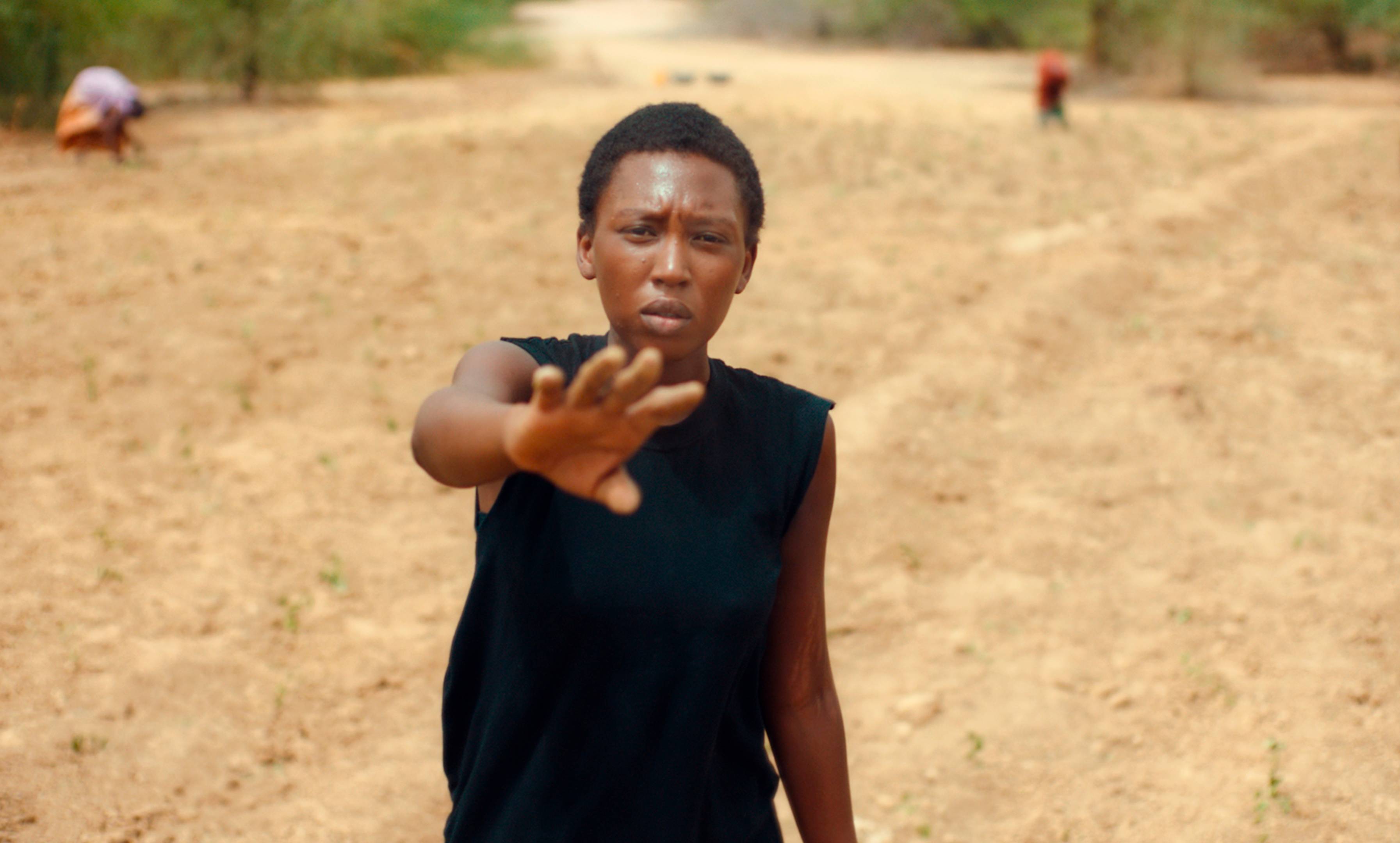
4 photos
When Ramata-Toulaye Sy tells us that she has similarities with her main character, we have no doubts, even though their life stories are completely opposite. She studied in Paris, wanted to be a writer, to devote herself to literature, but opted for cinema instead. African roots come from memories such as school holiday trips that lasted hours, from Dakar, to the homeland of her parents, without access to electricity. She took the course at La Fémis in 2015 and began devoting herself to scriptwriting, becoming a competent medical script [guionista que revê, decompõe e identifica problemas no texto]He made his directorial debut in one of the worst years that almost everyone remembers: 2020, with the film astel. Previously, he co-wrote two films, Sibel (2018) and Our Lady of the Nile (2019). At another of the most respected French festivals, Clermont-Ferrand (in the short film edition), it stood out.
As soon as the script was finished Banel and Adamathe producer tried to find someone to start the project, but he couldn’t. No one better than the director to get to work. The intention was clear: to break the expectations that arose from African cinema. To make genre cinema, to attack it, without fear, taking ambition and creating an “artistic experience”. “It was my way of breaking the rules,” she says. Asked about the strong presence of the African continent in Cannes, Ramata-Toulaye Sy believes that today is not the time for African women to tell their stories.The time of African women has always been the same, the West and its festivals have not paid attention.. There was a certain negligence, but like me, Mati Diop is also Franco-Senegalese, I hope that a woman who is only from Senegal or any other African country will come along,” she concludes. As for the magical realism of this first feature film, it is worth continuing. Africa has an ambitious representative in Ramata-Toulaye Sy.
Source: Observadora
